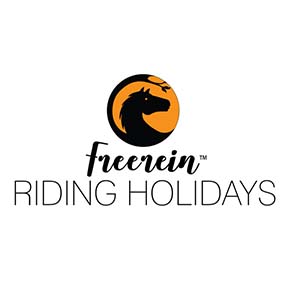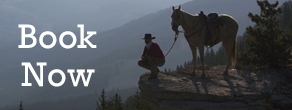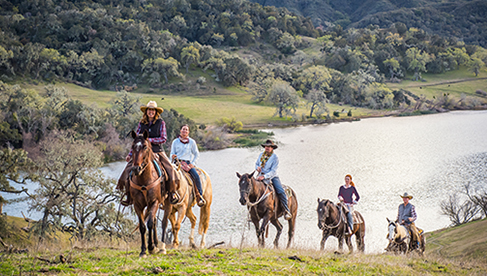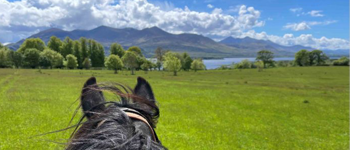A Horse Community in the Carolinas
A longtime resident reveals Tryon's Horse Appeal
“We’re not Aiken, and we’re not Ocala and we’re not Middleburg. We’re Tryon and we think our horse heaven is just that…. heaven.”
Dubbed a “best kept secret” for horse lovers, Tryon Horse Country straddles the foothills border of North and South Carolina. An area with a historic past, the horse community can boast of horse shows and fox hunts that are more than eighty years old along with a vibrant thoroughly modern equestrian community.
.jpg)
Western Horsemen Magazine named the area one of the Top Five Horse Towns in the country. A recent census of horses revealed that Polk County has the highest per capita ownership of horses in North Carolina. Surrounding areas on both sides of the Carolina line have similar equine numbers.
A Horse Lovers Playground
Tryon Horse Country is gifted with the ingredients that make horse lovers drool. For starters, there’s something for everyone. In the foothills of the Appalachians, hundreds of miles of beautiful trails entice riders to saddle up early and often. The four private trail system (membership is required) is almost entirely on private property, governed by an association.
Terrain includes meadows, unpaved roads, pine needle paths, old logging roads, waterfalls, steams and creeks.

For competitors, Tryon Horse Country boasts two competition venues, FENCE (Foothills Equestrian Nature Center) and Harmon Field, both which are filled with weekend shows nine months of the year. A third horse park, Green Creek Equestrian Park is currently being developed and will feature 10 rings, a steeplechase track and 800 permanent and temporary stalls. Culturally, horses define all the surrounding communities.
Tryon has Morris the Horse as its mascot. Morris, designed originally in 1928 by the Tryon Toymakers, still stands sentinel in the center of town.
Morris even has his own retail store, Tryon House on Trade Street, where you can buy high-end apparel as well as Morris Tevis cups, Morris golf balls, Morris tea towels to name a few.
Horses About Town
The Tryon Riding and Hunt Club, established in 1925 and the “caretaker” of Morris, is one of the area’s oldest civic organizations and sponsors horse shows, the Block House Steeplechase as well as equestrian scholarships for college bound local students. Look around town, and you’ll see city fire hydrants painted as huntsmen, multiple tack and farm supply stores and even municipal parking areas reserved for horse trailers.

The community also brags about its 19 horse organizations, its newly acquired equine ambulance and one of the country’s best equine surgical hospitals.
On any given day, you’re likely to see a horse drawn carriage on one of the unpaved roads or the fox hunters and hounds on a misty fall morning, or schooling on the FENCE cross country course, or a group of recreational riders out enjoying a beautiful Carolina afternoon.
Stop by one of the local restaurants or inns and you will be greeted with a window sign that says Boots and Breeches Always Welcome.
.jpg)
Horse Shows Rule
In years past, local stores and shops closed for business on Wednesdays when horse shows were the order of the day. In bygone days, there were three liveries in the hamlet of Tryon, waiting to serve both locals and visiting fox hunters that came to town for the season to ride and hunt. Prior to the establishment of the Pony Club in the United States in the mid-50’s, Tryon Horse Country had its own equestrian education program for young riders called the Junior Equitation Club.
In 1956, after the decommissioning of the U.S. Calvary, a group of involved citizens took it upon themselves to form a civilian equestrian team it could send to the Olympics.
The result was the first two Olympic trials in 1956 and 1960 were held in Tryon, producing some legendary riders such has George Morris, Hugh Wiley, Frank Chapot, among others. Even Olympic champion Nautical, the “horse with the flying tail” immortalized in a Disney movie, spent some training time in Tryon.
The mountain architecture of the area also accommodates the horsy set. Historic farms in “Hunting Country” still have old watering troughs in the front yards, and basement areas under houses built on hills that have stables as part of the residential structure.
.jpg)
A drive along the country lanes, lined with both pristine white board fencing and the more rustic split rails, reveals restored barns with antique accents mixed in with modern, state-of-the-art equine facilities. The terrain is rolling and the footing is good, which brings many competitors who wish for year-round riding in the mild climate and a rolling topography that encourages conditioning for sport horses.
New residents often comment on the diversity of the horse community and how well it melds. True enough, there are disciplines such as hunter/jumpers, dressage, eventing, driving as well as western sports, trail riders, racing enthusiasts, and even trick riding.
All disciplines and breeds are welcomed and encouraged.

Community Education
Another draw for this horse-obsessed locale is the complete equine infrastructure. Not only do we have abundant service providers such farriers, trainers, riders, instructors, equine dentists, chiropractors and rehab specialists. For educational pursuits, there is a community college equine marketing program, a high school equine course and plans for an equestrian vocational school.
Community leaders and policy makers have long recognized the advantages of having a strong, thriving horse community. The local economic development commission has a special subcommittee for equestrian as does the Chamber of Commerce. The community even developed a strategic plan for the future development of its equine interests.

Equally important and a point of local pride is the area’s dedication to the conservation of land for equestrian use. Several land use groups work in concert to provide landowners with responsible options for preserving open land.
Foxhunters, trail riders, hay growers, recreational riders and farmland preservation proponents have all joined forces to spread the word that the survival of our rural way of life depends on saving land. It has become the background mantra for Tryon Horse Country.
As a long time resident who has seen many changes in equestrian communities around the country notes, “We’re not Aiken, and we’re not Ocala and we’re not Middleburg. We’re Tryon and we think our horse heaven is just that…. heaven.”

Learn more about Tryon County at TryonHorseCountry.org & OurHorsesMeanBusiness.org
About the Author
Libbie Johnson describes herself as a life long horse lover. Libbie has always been active in her local horse community from rescue organizations to organizing an economic impact study for the local equine industry. She serves on several equine-related boards, including USPC, Equestrian Land Conservation Resource, Farm Bureau and the NC Equine Study advisory board. She has a background in public relations and applies it to volunteer activities whenever possible. She writes for Camden Equestrian Magazine.




